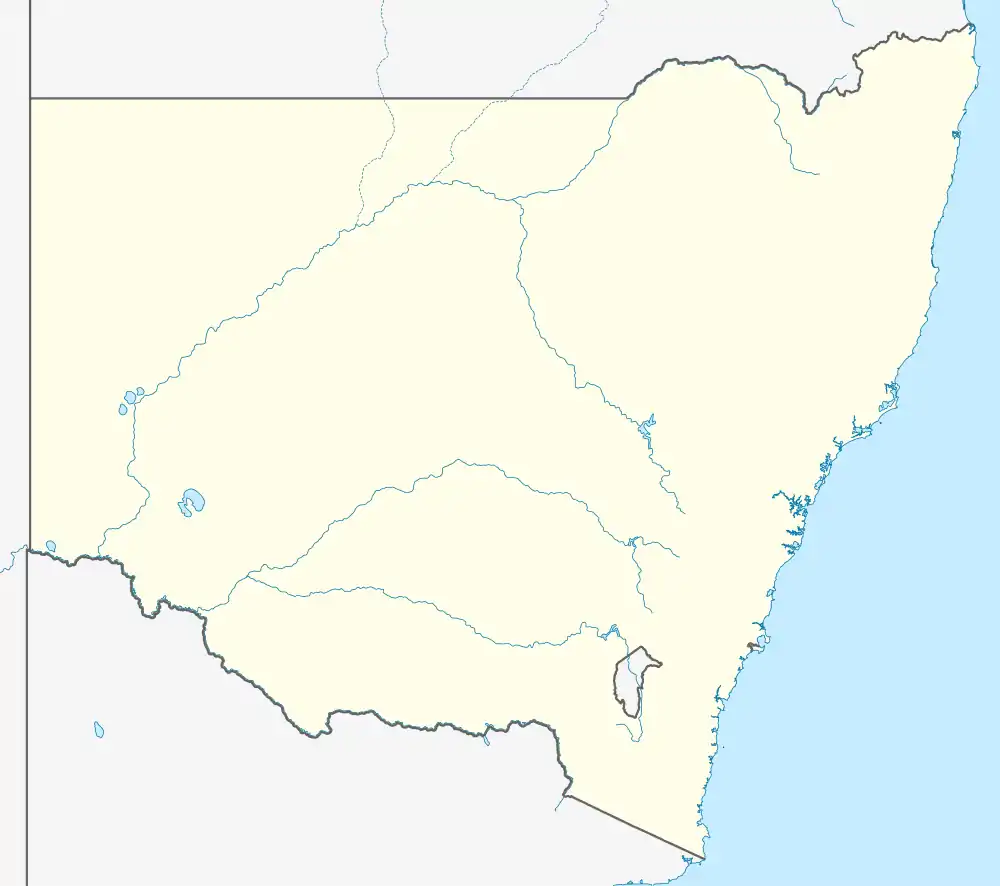Caryapundy Station
Caryapundy Station most commonly known as Caryapundy or Caryapundy Swamp is a pastoral lease that once operated as a cattle station in the channel country of outback New South Wales.

Geography
It is situated about 56 kilometres (35 mi) north east of Tibooburra and 192 kilometres (119 mi) west of Hungerford.
The tender was accepted for the run named Caryapundy by J. C. Myers in 1872. Myers was also had his tenders accepted for other runs such as Bollwarry, Mount Wood, Teriwinda and Torrens Creek.[1]
In 1873 the 64,000 acres (25,900 ha) unstocked property was put up for auction by the Minister of Lands.[2]
The property was put up for sale as part of five blocks owned by Mr. O'Connor. Caryapundy, Conulpie, Bolwarry, Omura No. 5 and Omura No. 6 were all for sale and advertised as being of Burke and Wills track and well watered by the Bulloo River, Tongowoko, Torrens and other creeks. At the time the area was made up of grassed downs and saltbush country.[3]
By 1892 the property was in the hands of Sidney Kidman who moved 10,000 sheep and 1,000 head of cattle[4] from the station, still owned by the Kidman Brothers in 1899, Sidney Kidman described it as "one of the worst in New South Wales, the 54,200 acres (21,934 ha) might carry 230 cattle but no more, much of it is a claypan that will never carry feed".[5]
Caryapundy Swamp
The swamp is a wetland that partly lies within the station boundaries. The wetland straddles Queensland and New South Wales is about 100 kilometres (62 mi) in length and 35 kilometres (22 mi) wide. During flooding the wetland is often over 1.8 metres (6 ft) deep and can cover the dog-proof fence between the states. The area is flooded about once every ten years but is also prone to drought. The area flooded in 2010 after a long drought and an estimated 35,000 pelican nests were found within the swamp area.[6]
See also
References
- "Government Gazette". The Empire. Sydney, New South Wales: National Library of Australia. 11 December 1872. p. 2. Retrieved 16 June 2013.
- "Advertising". The Sydney Morning Herald. National Library of Australia. 11 October 1873. p. 10. Retrieved 16 June 2013.
- "Advertising". The Sydney Morning Herald. National Library of Australia. 23 August 1877. p. 7. Retrieved 16 June 2013.
- "Pastoral Intelligence". The Argus. Melbourne, Victoria.: National Library of Australia. 12 September 1892. p. 6. Retrieved 16 June 2013.
- "Rough Country in the back blocks". South Australian Register. Adelaide: National Library of Australia. 28 September 1899. p. 5. Retrieved 16 June 2013.
- "Water, water everywhere as downpour settles the dust". The Age. 8 June 2010. Retrieved 17 June 2013.